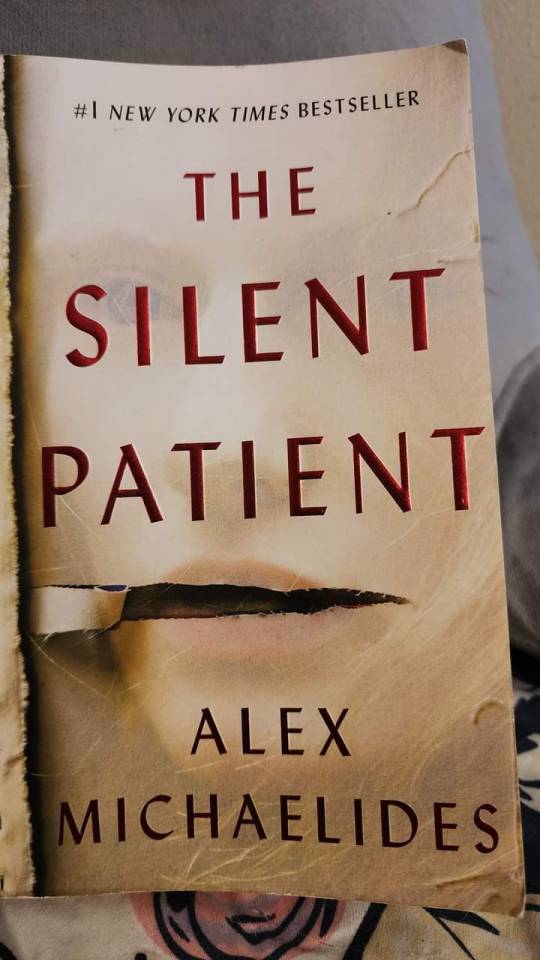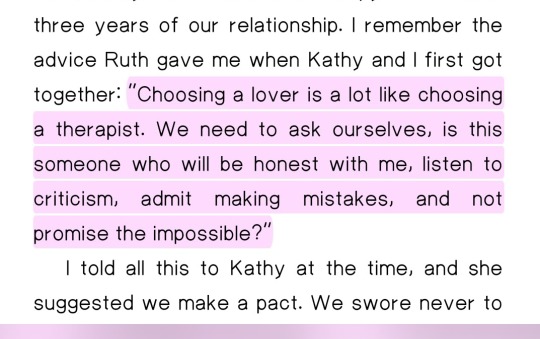#patient review
Explore tagged Tumblr posts
Text

0 notes
Text
🌟 A beautiful smile starts with the right care! 🦷 We’re proud to share this 5-star review from one of our happy patients. 💬 Trust us with your smile journey! #HappyPatients #DentalCare

0 notes
Text
Gratitude for Dr. Nichole Gansemer, ND

View On WordPress
0 notes
Text
#Patient Experience#Patient review#patient testimonial#testimonials#review time#review#kauvery hospital#healthcare#healthy#healthcare news#newsletter
0 notes
Text








🫵 i can smell you
#hi guys i’m back (i was never really gone turns out i just needed to leave Twitter and also give myself an excuse to not tend to reviews or#art please be patient i am busy and burnt out and just sort of surviving and seeking comfort and serotonin how i can 🙏) and i love Wander#woy
56 notes
·
View notes
Text










The silent patient by Alex Michaelides just finished this book honestly i'm speechless. This book is incredibly well written with the gripping plot and characters was well developed. The plot twist at the end caught me completely off guard it honestly left me staring at the wall for a good 20 minutes, honestly glad I have read it my reading slump is cured. If you like psychological thriller this novel is for you. (5/5)
Favourite quotes:
"Remember, love that doesn't include honesty doesn't deserve to be called love."
"Unexpressed emotions will never die. They are buried alive, and will come forth later, in uglier ways. SIGMUND FREUD."
"The aim of therapy is not to correct the past, but to enable the patient to confront his own history; and to grieve over it. ALICE MILLER."
#books and reading#booklr#reading#book blog#love reading#book nerd#bookish#books#bookworn#black girl reader#book review#the silent patient#the silent patient Alex Michaelides#the silent patient aesthetic#moodboard#thriller#book quotes#new books#source: pinterest#psychological thriller
63 notes
·
View notes
Text
so you want to watch a Hallmark Hanukkah Movie
Last year @heliological and I watched all 7 Hallmark Hanukkah Movie that were out at the time (plus the one lifetime hanukkah movie, Menorahs and Mistletoe) to make a cool fanvid. Actually, you don't need to have seen any of these movies to watch that so I'm going to shamelessly stick that in the body of this post
I've just watched the two movies that came out this year, so, below the cut, my personal ranking of every Hallmark Hanukkah Movie (plus mistletoe and menorahs which I'm declaring an honorary hallmark movie)
Perhaps it shouldn't be surprising that watching 10 Hallmark* movies set in December means a lot of exposure to that other December holiday. Personally I avoid Christmas as much as possible, but I hear some people love it, so I'll rate each of these movies on 3 axes:
Hallmark: how much christmas is in a movie (higher is worse imo)
Hanukkah: how much this movie knew (or got wrong) about Judaism (according to me, one Jew on the internet)
Movie: okay but was it actually fun to watch (again, according to me)
Round and Round (2023)
Rachel gets stuck in a timeloop on the seventh night of Hanukkah. Hallmark: 1: Christmas barely exists in this movie, and every character we know celebrates a holiday specifically celebrates chanukah. A 1 instead of a 0 because there are a few moments of Christmas existing in the world (true to life in north america in december, unfortunately)
Hanukkah: 8: loses a point for a couple of incorrect props, but generally seems like it knows what it's doing about hanukkah/feels like a reasonable portrayal of Jews
Movie: 10: this is the only one of these that I told people irl to go see: I genuinely liked and would recommend this movie! I love timeloops, I found the romance genuinely very compelling and handled well with the context of the timeloop, it was really charmingly nerdy, so I'm 100% the target audience for this one. Dropout fans may note that one of the leads is played by Vic Michaelis.
Hanukkah on the Rocks (2024)
An old town dive bar turns into a Hanukkah party when just-laid-off lawyer Tory gets pulled into the community.
Hallmark: 0: I just finished this movie and I honestly don't remember there being any Christmas in it at all? It was mentioned as existing once? A real breath of fresh air as compared to the other Hallmark Hanukkah movie from this year
Hanukkah: 9: This gets bonus points for remembering that Jewish holidays other than Hanukkah exist. It was a little hokey at times about shared jewish experiences or whatever, but such is hallmark. Deducted the last point because I am mad about "Hanukkah in July"
Movie: 7: The description of this movie doesn't do it credit - it's surprisingly fun to watch! The main actors are pretty good and it was fun to watch everyone interacting. The pacing was a little wonky and the ending was a little rushed because this was way more focused on figuring out what you want in life/forming community than the actual romance plot. But I love the kind of romance that's actually a late coming of age story and this overall worked pretty well.
Hitched for the Holidays (2012)
Nice Jewish Girl Julie and Catholic boy Rob find each other on Craigslist looking for fake dates for the holidays. Shenanigans ensue when Rob pretends to Julie's family to be Jewish.
Hallmark: 5: this definitely had a fair bit of Christmas in it, since his family celebrates Christmas, but we're grading on a curve here because if I recall correctly this at least doesn't try to explain Christmas to the Jewish girl or do a kiss under a Christmas tree. It's set over pretty much the whole month of December so it's as much a new years movie as a christmas movie in that sense.
Hanukkah: 7: I'm giving this a relatively high rating despite it mostly showing Hanukkah celebration that's messed up on purpose as a joke about how the goyish boyfriend doesn't know anything about Hanukkah. So we get things like him blowing out a menorah, but hey, them including that as a joke means that the creators of this movie know that you're not supposed to blow out a menorah!
Movie: 6: I thought it was a pretty good romcom. It has a real plot arc, and it's doing some fun tropes. I will say that this movie runs on cringe humor, which I don't love but at least it's doing something. This is one of two movies I watched in 2022, so I may be underselling it a bit because I've forgotten, but it was actually pretty memorable.
Holiday Date (2019)
Nice Jewish Boy Ethan is hoping to get an acting gig in a play that involves small town Christmas, so he volunteers to pretend to be Brooke's boyfriend when her real boyfriend dumps her just before going to her parents' for Christmas.
Hallmark: 10: this is a Christmas movie that has a Jewish boyfriend
Hanukkah: 4? this didn't get anything wrong about hanukkah iirc but it's really not a movie about Hanukkah and it doesn't have a ton of screentime. They light some candles and have latkes and soufganiot
Movie: 8: Ethan's actor, Matt Cohen (who imdb tells me was on a few spn episodes back in the day?), made this movie. He was just shockingly charming and enthusiastic about everything in a way that made it somehow work for me even though I simply would not be anything like that level of enthusiasm in his place. And the fake dating plot worked pretty well. It does run into the classic hallmark conservatism, so even grading on a scale that ignores the Christmas of it all I don't want to give it full marks, but it was a notably way better, more cohesive, and more fun to watch movie than a bunch of these. This did make me say oh if I liked Christmas some of these movies would be fun vs many of the hanukkah ones are deeply mediocre in a way that isn't really fun, but that may mean if you have a tolerance for Christmas you have choices that are even better than this one. This one actually has the worst rating on letterboxd of every movie here, which, again, suggests that if you like Christmas there are better movies (with fewer Jews) and if you don't like Christmas this is so much Christmas.
Eight Gifts of Hanukkah (2021)
Who could be leaving Sara all these Hanukkah gifts? Surely not her good friend who used to be the boy next door. How will she choose between the mystery gift giver and the chef she just met online?
Hallmark: 2: I'd forgotten about this one honestly but it's really not about Christmas! They do have a half-Hanukkah-half-Christmas display because Sara's business partner is Christian, but honestly, it's pretty cute! The chef isn't Jewish but he doesn't force Christmas on her and is interested in her family's hanukkah celebration which is honestly very charming, so maybe this movie really deserves bonus points for knowing that Christmas exists but not being obnoxious about it
Hanukkah: 8: detracting some points for the JCC running a "Hanukkah hunt" which I personally hate. Also at one point someone carries a lit menorah? I don't think that's not kosher it just seems dangerous. Gets a bonus point for having a hanukkah song that isn't made up for the movie in it as instrumental background music!
Movie: 6: I have this in my notes as "perfectly functional romcom". Tbh this one may have been a worse watching experience just because I watched too many mediocre movies all at once, I think it was pretty okay. Also gets bonus points from me for not being set in NYC
Hanukkah on Rye (2022)
Jacob and Molly have a meet-complicated when they realize that the delis that they're both inheriting are competing .... but also secretly they've been paired up by a matchmaker at the same time.
Hallmark: 1: Tragically this is our last one that is not about Christmas. a 1 instead of a perfect 0 because the magical matchmaker who wears red and white and has glasses that glint in a particular way felt Christmassy to heliological, the Christmas Movie Knower of the two of us (also there's a Christmas tree in the lobby of the building they live in)
Hanukkah: 9: sure yeah this one knew about Hanukkah and was generally reasonably culturally aware. Detracting a point because their latkes do not actually look good to me (and imo deli latkes aren't really a big hanukkah thing?) but this is just me looking for reasons to mark it down [EDIT: apparently this is in fact an NYC thing, so like this movie reflects A Jewish Experience just not MY Jewish Experience]
Movie: 4: Unfortunately this one wasn't so much bad as boring, which is the worst crime in a movie imo. I wasn't super drawn in by the leads or their romance. Hallmark movies love having family screentime, but there was a little too much family in this one and they didn't really get individual personalities. If you're the kind of person who wants to watch a hallmark hanukkah movie you may still like it? Certainly some folks on the internet thought it was the best one up to that date. The one good part of this movie to me was that there was grandma yuri.
Leah's Perfect Gift (2024)
Nice Jewish Girl Leah loooooves Christmas (because she's been poisoned by living in a hallmark universe) so she's thrilled that her boyfriend has invited her to his family's Christmas celebration. Unfortunately, when she gets there, his mom is... not super welcoming?
Hallmark: 10: this is a Christmas movie
Hanukkah: weirdly, also 10? The problem with this movie is after about the first 15 minutes the fact that Leah is Jewish was almost never addressed again. (I'll get to that more in the movie section, I think it actually let down the plot.) But those first 15 minutes of establishing? They must've gotten some Jews involved with making this movie! In very little time they showed more Jewish culture (and Jewish culture that isn't specifically about Hanukkah) than several of these that were nominally all about Hanukkah. They know about another Jewish holiday! They namedrop Maimonides!!! The mom is PERFECT. Anyways wish this had been visible in Leah in the rest of the movie.
Movie: 6: hallmark is simply too cowardly to follow through on the premise they set up here: how do you navigate a holiday you don't celebrate with a family that really doesn't want you there. This was trying to thread the needle of things are going wrong for her because she's Jewish and doesn't have the right cultural expectations around Christmas ... but also all of the problems are specific to this family and will be dealt with by the individual problem causers realizing they were wrong (on their own) and apologizing. It's doing something as a movie! That's a bold choice! Unfortunately it doesn't pull it off, and the failure to pull it off made me go from liking to hating the boyfriend because he subjects Leah to the gauntlet of his garbage family Christmas and then doesn't really do anything to support or protect her. Leah should've gotten together with Tricia the general store clerk who as far as I can tell is only in this movie to hype Leah up and listen to her problems. Also thematically I would've liked more moments of Leah bringing her own background into this celebration - it didn't really feel like her failures at this family's Christmas were because she's Jewish or even because she doesn't celebrate Christmas - this family's Christmas was just very bad and weird.
Love, Lights, Hanukkah! (2020)
Christina is adopted but she gets a DNA test that reveals that she's biologically Jewish and therefore she obviously wants to reconnect with her birth family at the "most magical time of the year"... Hannukah.
Note: I watched this one in 2022 and it did NOT make a big impression so this will be my least accurate review
Hallmark: 6: I think there was a bunch of Christmas
Hanukkah: 7: I don't think this did anything egregiously wrong but it wasn't particularly good about Jewish rep either. There's a fundamental problem with your main character is adopted and her first view of Judaism is going to be all about Hanukkah...
Movie: 4: forgettable :p
Mistletoe and Menorahs (2019)
Christy loooooves Christmas and doesn't know anything about Hannukah but she needs to know about it for work. Nice Jewish Boy Jonathan needs to decorate his apartment for Christmas to impress his goyish girlfriend's father. Surely these are equivalently unknown cultures that they can have a nice time sharing.
Hallmark: 9: not a Full On Christmas Movie but it spends a lot of time Explaining Christmas
Hanukkah: 6: I don't think this is super informative about Hanukkah and doing it as a Teaching Experience when it's super basic stuff to me is kind of annoying. Also some truly garbage looking latkes made by Christy. But it gets the bonus point for knowing that another Jewish holiday exists!
Movie: 3: let's learn about Christmas was never going to be a compelling plot to me, and Christy is also just not very good at coming up with toy ideas for someone whose job that is? My notes say this is "pretty middle of the road for these" which is more damning of the whole Hallmark Hanukkah Movie concept than this movie in particular
Double Holiday (2019)
Nice Jewish Girl Rebecca is tragically forced to throw the office Christmas party with her work rival. At the end of this they do get together, obviously
Hallmark: 9: Sooo much Christmas. Did you know that dinosaur cookies are insufficiently Christmas for Christmas cookies? There is a kiss in front of a Christmas tree
Hanukkah: 5: they get big into spinning dreidels upside-down? Why. And their latkes don't look good. I don't remember them doing anything else Obviously Wrong but it wasn't good.
Movie: 3: I didn't like this one, which was mostly about the Christmas of it all but also it wasn't good
Congrats on making it all the way here Hallmark you should consider making a movie for Any Other Jewish Holiday sometime. My mom tells me that there is at least (and perhaps exactly) one decent Hanukkah romance novel so it's not like the options are so much better book-wise
#I was going to wait until it was actually hanukkah to do this but whatever it's next week close enough#this years movies have certainly already been out for at least a week#and I wanted to watch something stupid last night#I am not patient enough to write this and then queue it#hallmark movies#I guess#hanukkah#sometimes you have to do a dramatic review post that no one wanted
18 notes
·
View notes
Note
Can dementia be prevented?
Reducing the risk of it yeah, w a healthy lifestyle. Preventing it no. The first patient I saw w the specific case of dementia I’m studying is a literal heart surgeon 💀 not the average bear at all. Big brain & healthy (according to his wife) & yet started showing symptoms over a course of 6 years.
It’s so fucking scary what dementia does to you. It’s far from just being cognitive stuff/memory loss. Your behavior changes, your cognitive skills are impaired, your motor skills take a hit. The heart surgeon I’m talking about is struggling w mouth function rn, bc his muscles are atrophying as a direct result of his dementia. He legit went from operating cardiovascular surgeries last October to now not being able to speak. It’s different from case to case, but when it’s aggressive it’s fucking aggressive. The neurologist I’m shadowing was talking about how she doubted if he’d “still be here within the year” and I wanted to throw up bc what do you mean if he’ll still be here!!
#His wife loves him sm too#And I gave her a hug on my way out of the clinic#She pulled me into it literally. The caregiver’s burden is real#They don’t have kids either so idk what she’ll do when/if he passes away#And that was the first case that I saw too. Just one. And already so much to unpack#I’m doing my chart review on another patient but his story is no more sunny#Dementia is fucking vicious#ask#med tag
58 notes
·
View notes
Text
So, this week's remaster...

[spoilers below cut]
i totally forgot the remaster series tbh lol. let me get out of my tent of theorizing real quick
but fr hey chat, i had long day of work today (publication stuff) and didn't get a chance for this until now. not sure if people look forward to me reviewing the remasters for self-explanatory reasons, but i'm gonna go ahead and do this. (fair warning that's gonna be a short post)
(the following is my live reaction:)

starting off strong with Mario doing Mario Things (TM) ft. his true love spaghetti /silly
now you may ask "why doesn't Mario just bunch the glass?", did you really think Mario's gonna put spaghetti in harm's way? smh
besides, this before he realized he could
love how expressive Mario is ← says this for the thousandth time
*sees that I'm wearing blue* well piss
🎹🎶how to hide a body :D
hey, Mario has his priorities. let my guy have food
and also a gun, that nerf ain't gonna do shit


yes finally... NO MARIO NOOOO
Recolor Mario 4 jumpscare

god so many of these lines bring me back
now let's be clear: i think Mario would be a great wife in general :) just me?
NONONO WAIT HOLD UP did i just hear my beloved Find My Flame from Sonic Frontiers in the bg?! ok, whoever edited that in, here you go

just putting anything sonic-related in an episode is all you need to convince me that it's peak
anyway.... 🎸🗣️WILL THE WHOLE WORLD KNOW YOUR NAME WHEN WE DANCE IF DESTINYYYYY? I'VE BEEN THERE AND I'VE SEEN IT I'M NEVER GONNA STOP BELIEV— *explodes* oh c'mon bro, i can never catch a break >:(

oh hey bob .png :)

and that's all it took, this is Mario we're talking about
so anyway H A T
Congrats to windr31 for your fanart being featured in the end credits 🎉 i always loved the art inspired/based on the renders Ben makes on the side

.・-: ✧ :--: ✧ :-・.
it was a pretty good remaster, it goes SO well with the chaotic vibes the SMG4 has! As it is a remaster, not much has changed from the OG but you can appreciate the small details here and there (like Mario's expressions) that make it all quite nice. (yeah no we're not gonna think about what they're planning, i'm always watching)
The Sonic Frontiers ref, you already got my stamp of approval 👍 it's now ink-certified. Now that's settled, Mario would be a lovely wife and...
🎸🗣️ SO BREAK THROUGH IT ALL AND DON'T LOOK DOWN YOU WON'T FADE OUT CUZ THE FIRE IN YOU NEVER DIES— *gets squished by a spaghetti vending machine*
#smg4#smg4 spoilers#smg4 mario#ink reviews#hey Team?#i'll be waiting for that sonic 3 ep#patiently ofc *stares with wide eyes*
9 notes
·
View notes
Text
"Dr. Holland is the most caring, skillful, intelligent, and quick-witted doctor I have ever had the pleasure of knowing.” Dr. Holland offers cutting edge, integrative and evidence-based mental health care, proven effective with depression and anxiety, life transitions; relationships, pregnancy, parenting, ageing, loss, and much more. If you are looking for a…

View On WordPress
0 notes
Text
#Patient Experience#Patient Testimonial#Patient Review#healthy#healthcare#kauvery hospital#healthcare news#newsletter#newsletter october#healthcare newsletter
0 notes
Text

*the silent patient*
Author: Alex Michaelides
Genre: Thriller
Rating: 4.5 ⭐
From the very beginning of this book, I was hooked. I found myself so wrapped up in the story, invested in unraveling the mystery behind why Alicia murdered her husband.
Michaelides does an excellent job in creating a story filled with things and characters that are meant to keep you guessing.
Written in five parts with very short chapters, this made for one fast read that was hard to put down. It's so easy to burn through a lot of pages when you think,
"Well this chapter has 3 pages, I can keep going." And the twist? That twist? I found myself continuously changing my theories as more and more details surfaced, and I truly didn't see that twist coming until it was right under my nose.
Favorite dialogue:
*“Choosing a lover is a lot like choosing a therapist. We need to ask ourselves, is this someone who will be honest with me, listen to criticism, admit making mistakes, and not promise the impossible?”*
#the silent patient#alex michaelides#classic books#books and reading#light academia#currently reading#book lover#book reviews#readers of tumblr#books to read#bookworm#book club#booklr#book blogger#book blog#book haul#book reviewer#book review#book lovers#books and libraries#book recommendations#book tumblr#book community#book reading#reading goals#reading community#reading#books and literature
55 notes
·
View notes
Text
!!!NEW REVIEW!!!

this being the longest analysis i have ever written in the 5+ years i've been doing, surely this short is one of the most well-known and beloved cartoons in the entire Warner catalogue. ...or, it could be a somewhat forgotten effort by a Very forgotten director, with Daffy as the star being the only real link to the short's relevancy some 82+ years later!
but such is the price of love for Daffy! The Impatient Patient is yet another installment in a string of Warner cartoons parodying Dr. Jekyll and Mr. Hyde, with telegram deliverer Daffy being the unwilling victim. Norm McCabe demonstrates a clear understanding and intimacy of Daffy's character like nobody else, continually expanding his emotional capacity and dimension in ways that are all too easy to take for granted. thankfully, neurotically dissecting every little bit of progress is exactly the purpose of this blog!

#MAY OR MAY NOT REBLOG AGAIN TOMORROW since it's getting late and also THIS IS THE LONGEST REVIEW I'VE EVER WRITTEN LOL#and plus there is a looooooooooot of Daffy analysis here so hopefully that'll be of interest given the folks who follow me#i basically am Daffy's therapist all through this review. i have 'the cinema of Daffy Duck must be studied so that we can find a cure'#pinned for a reason#lt#looney tunes#the impatient patient#mccabe#and i can't rest on my laurels BECAUSE THE DOVER BOYS IS NEXT AHHHHHH#reviews
37 notes
·
View notes
Text

#book recommendations#book review#bookblr#books#books & libraries#book quotes#book reading#book quote#love#love quotes#booklr#love advice#relationship goals#advice#relationship#the silent patient#alex michaelides
24 notes
·
View notes
Text
appointment to (hopefully) get anxiety medication this morning :)
#the shrink seems nice the reviews about her were really great#and she specializes in neurodivergent patients. so Hopefully#rambles
15 notes
·
View notes
Text
The Silent Patient by Alex Michaelides
Spoilers!
Y’all aren’t gonna like this. I strongly disliked this book. I wanted to know what happened just enough to finish the book, but mostly to see if my predictions were correct.
I feel as though the twist was too predictable. I admit, I didn’t know exactly how, but I knew that Theo, the narrator, was going to be involved in the murder somehow. He was uncomfortably adamant to see Alicia as his patient. He was extremely unprofessional. Theo immediately felt like an unreliable narrator to me. I wish that aspect of the book had been more subtle, so that there was a greater element of surprise.
When the element of Theo’s wife’s infidelity came into play, I couldn’t stop thinking of a lesson from my creative writing class. Every element of the story serves to move the plot forward. So where was this plot line going? Was this going to blossom into a weird inappropriate therapist-client relationship? That was my first thought. I didn’t like that idea, though, and hoped for something else. Then, Theo’s inaction in regard to his wife’s infidelity continued, and the unease toward his character grew. I would commend this in another context, I think. But this only served to further confirm what I already believed was obvious, Theo was guilty character.
When Theo’s stalking began, and interspersed we saw Alicia believing she was being watched, I didn’t doubt that it was Theo. Again, I wasn’t sure how, until it was 100% confirmed it was him. Then it was easy to see that the chapters of his wife’s infidelity were just further in the past than I had immediately assumed.
I love when books play with time, but it felt lack luster since I had little doubt that it was Theo to begin with.
Also, how dumb is Theo? After reading the play that inspired Alicia’s self portrait “Alcestis” how could he still question her silence? He is the one that put her in an almost 1:1 scenario of the play. He was there. He, from the beginning, knew the information we the readers did not. The missing element to make sense of her silence was known to him the entire time?? And the gall to provoke her speech only to kill her. Absolutely ridiculous.
Those are my biggest complaints. Although there are more that added to my dislike of the novel.
Him being left alone with a female patient who can’t speak? Immediately after starting? I scoffed. Him not even thinking of her potential discomfort (on multiple levels) baffled me. Honestly, the book being littered with unrealistic psychiatry practices were details that ripped me from any immersion.
I felt that the characters were bland on top of it all. It was like they were caricatures of what they wanted to be. I could see what Michaelides was trying to do with some of them (Max for example), but they fell short of being fully fleshed out, interesting characters.
I would give The Silent Patient a 2.5/5. It’s readable, there is intrigue, but it felt like an idea that would have been wonderful if it had been thought out more. It honestly just aggravated me more than anything else. Not really the feeling I want to be left with when completing a book.
I know this is well loved book. I’d love to hear other opinions. Nicely, if possible.
Thanks for reading!
#the silent patient#alex michaelides#books#bookblr#booklr#book blog#literature#book review#books and reading
12 notes
·
View notes